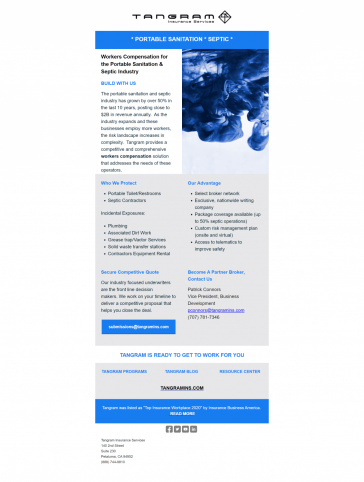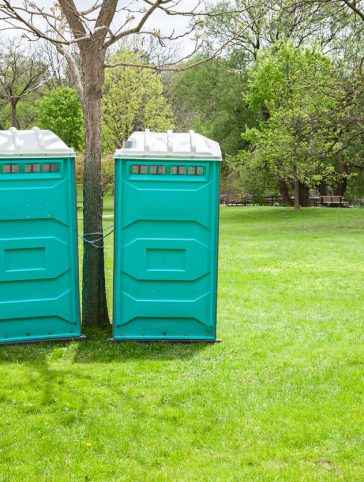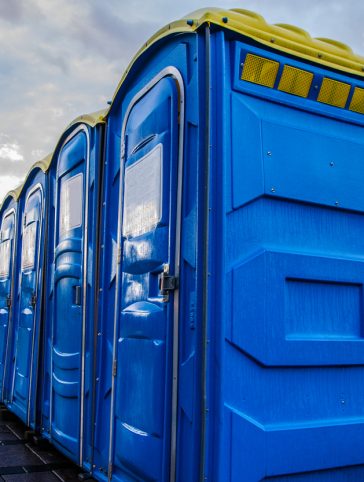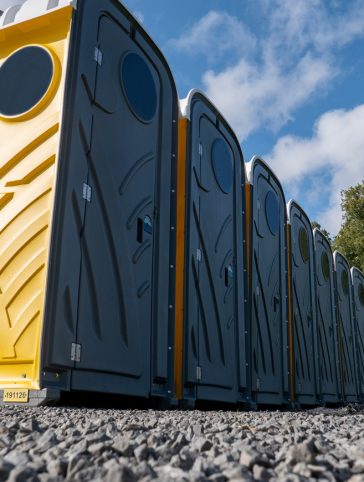The portable sanitation industry isn’t glamorous, but it is necessary. Over the next decade, the sector is expected to grow in response to increased demand. As the industry grows, so will the need for risk management, making this a good time to consider insurance for portable sanitation.
What’s Fueling the Portable Sanitation Market Growth?
According to Grand View Research, the global portable toilet rental market was worth $18.16 billion in 2021 and is expected to see a compound annual growth rate (CAGR) of 7.5% between 2022 and 2023. The U.S. portable toilet rental market was worth $3.0 billion in 2021 and is expected to have a CAGR of 6.7% over the same time period.
Grand View Research attributes this growth to several factors, including increased construction activity and interest in outdoor recreational activities.
How Growth Creates Risk
In the business world, growth and success are nearly synonymous. The portable sanitation industry’s growth is an exciting opportunity for businesses in the sector. Nevertheless, growth may also involve risks. As companies expand, they have more employees, equipment, and customers, which creates more exposures.
Consider the following risk scenarios. A portable sanitation company:
- Purchases additional vehicles and portable toilets to keep up with demand. The larger fleet means the company sees an increase in collisions, leading to increased commercial auto costs.
- Needs to hire more workers to keep up with demand. These new workers lack experience and are therefore more prone to injuries. The company sees an increase in workers’ compensation claims and is hit with higher rates at the next renewal.
- Lands a contract to provide sanitation services for a large festival. During the festival, a woman is injured when one of the portable toilets tips over. Now, the company is facing an expensive lawsuit that may exhaust its general liability limits.
Lawsuits May Get Messy
“Portable toilet” and “prank” are two terms you don’t want to see in the same sentence. According to Time, a Pennsylvania man was paralyzed from the neck down in a portable toilet prank gone wrong. His relatives tried to trap him inside by backing their truck against the door but ended up tipping the portable toilet over, leading to the man’s injuries. The man sued his relatives as well as the portable toilet manufacturer and the installer. He won $5 million in the settlement.
Portable sanitation companies may think it’s unfair for them to face liability over a prank. However, Time says the lawsuit claimed the manufacturer was liable for failing to provide spikes to secure the toilet to the ground. The installer had placed the toilet on a hill and had used wood to keep it level.
This is far from the only lawsuit against portable sanitation companies:
- WCBD-TV says a South Carolina man filed a lawsuit against a portable sanitation company and a national campgrounds company after being trapped inside a portable shower trailer while it was being transported. According to the lawsuit, an employee with the portable sanitation company loaded the unit onto a truck without inspecting the inside first.
- ALM says a woman was awarded approximately $2.5 million after she slipped in a puddle of fluid outside a portable toilet unit that had been set up next to a store while the regular restrooms were being remodeled. A subcontractor was cleaning the portable toilet when the incident occurred.
- The Exponent says a man filed a lawsuit against a portable sanitation company after he slipped inside a portable toilet set up at a football game. According to the lawsuit, the portable toilet was on uneven ground and rain that had entered the unit had no way to drain.
Managing Risks During Periods of Growth
As the portable sanitation market grows, lawsuits like the ones above may become more common. However, company leaders can take steps to manage their risks.
- Focus on loss prevention. Many lawsuits allege negligence regarding the placement, servicing, or loading of portable toilets. New workers are especially prone to acts of negligence because they lack experience. Clear policies and comprehensive training can help portable sanitation companies prevent incidents.
- Check your insurance coverage. Your limits may need to grow with your business. In addition to your per-occurrence limits, check your aggregate limits. As a bigger company will reach these limits faster, they may need to be higher.
Tangram’s portable sanitation insurance program provides property, auto, inland marine, general liability, umbrella, and workers’ compensation coverage designed to meet the needs of this sector. Learn more.




